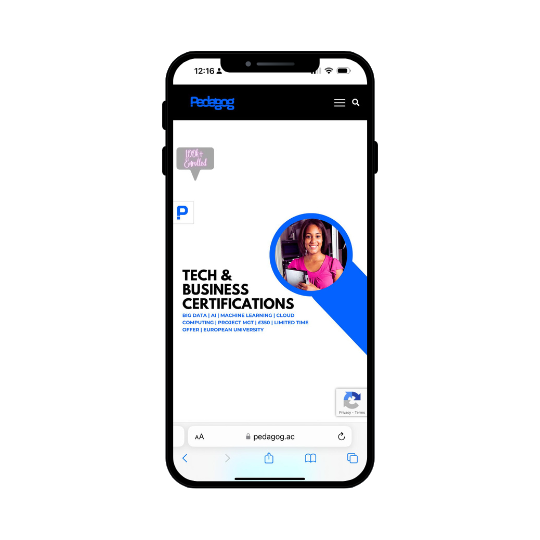Dr. Rohit Kumar Pal
Senior Academician, Pedagog
Introduction: A Shift in Academic Influence
In the pre-digital era, academic lobbying—efforts by scholars, institutions, or disciplines to influence policy, funding, or public discourse—was often confined to elite networks and closed conferences. Today, the digital transformation has redefined how academic influence operates. With the rise of social media platforms, open-access repositories, citation analytics, and algorithmic visibility, lobbying in academia is no longer a behind-the-scenes process—it’s an active, online performance.
1. From Ivory Towers to Twitter Threads
Social media has democratized academic voice. Platforms like X (formerly Twitter), LinkedIn, and ResearchGate have become vital arenas for researchers to promote findings, critique policies, and form coalitions.
Digital-savvy academics now use hashtags like #AcademicTwitter or #OpenScience to mobilize peers and shape public opinion. This visibility not only affects reputations but can also indirectly influence grant allocation, policy direction, and peer recognition.
As studies show, academics who maintain active online profiles tend to have higher citation rates and more frequent invitations to collaborations (Van Noorden, 2014, Nature).
2. The Rise of Digital Advocacy Networks
Lobbying in the digital age is less about formal petitions and more about data-driven influence. Organizations and scholars employ altmetrics (alternative metrics beyond citation counts) to demonstrate impact across blogs, tweets, and online media.
Tools like Altmetric.com and ImpactStory track social mentions of scholarly work, providing researchers with “digital lobbying ammunition” to justify funding or policy relevance.
These metrics also feed into institutional lobbying efforts—universities increasingly showcase social impact dashboards to government agencies and donors, highlighting engagement rather than traditional publications.

3. Algorithmic Gatekeeping: The Invisible Lobby
While digital visibility empowers some, algorithms introduce new hierarchies of attention. Search engines, journal indexing systems, and AI-based recommendation tools can unintentionally favor certain authors, institutions, or topics.
This has created what scholars call “algorithmic lobbying”—strategic optimization of keywords, metadata, and citation patterns to appear more prominently in digital academic ecosystems.
For instance, optimizing research keywords for Google Scholar or Semantic Scholar ranking is now an informal but growing form of lobbying for recognition and reach.
4. Policy Influence in the Age of Open Science
Open-access movements have blurred the lines between scholarly communication and political advocacy. The Plan S initiative in Europe and UNESCO’s Open Science Recommendation (2021) were both driven by coalitions of digitally connected researchers who used online platforms to coordinate global lobbying campaigns for open knowledge.
In this digital ecosystem, lobbying is not just about gaining resources but about reshaping epistemic power structures—determining who gets to define what counts as “legitimate knowledge.”
5. Ethical Dimensions: When Advocacy Becomes Manipulation
The convergence of digital influence and academic ambition raises ethical challenges. “Academic influencers” may sometimes blur the boundaries between advocacy and self-promotion, prioritizing visibility over rigor.
Moreover, digital lobbying can amplify inequalities—those with greater institutional support or technological literacy dominate digital spaces, while underrepresented voices remain marginal.
Institutions must now develop ethical frameworks for digital academic engagement, ensuring that influence aligns with integrity.

6. The Future: AI, Data, and the Politics of Knowledge
As AI tools like ChatGPT, Scite.ai, and Dimensions become embedded in scholarly workflows, lobbying will increasingly involve training datasets and algorithmic bias.
Future academic lobbying might involve influencing how AI systems classify and recommend research, thereby shaping not only what gets cited but what gets seen.
In short, the next frontier of lobbying is epistemic governance—negotiating influence at the intersection of algorithms, academia, and authority.
Conclusion: Rethinking Influence in the Knowledge Economy
Academic lobbying in the digital age is no longer about who sits on the right committee, but who commands attention in the right networks.
It is a form of intellectual advocacy, where scholars must balance persuasion with ethics, openness with rigor, and digital visibility with authenticity.
In this emerging landscape, influence is not merely political—it’s algorithmic, participatory, and deeply human.
Suggested References
- Van Noorden, R. (2014). Online collaboration: Scientists and the social network. Nature, 512(7513), 126–129.
- Sugimoto, C. R., et al. (2017). Scholarly use of social media and altmetrics: A review. Scientometrics, 114(1), 217–239.
- Ortega, J. L. (2020). Altmetrics as a source of information for scholarly evaluation. Springer.
- Bornmann, L. (2014). Do altmetrics point to the broader impact of research? Journal of Informetrics, 8(4), 895–903.
- Wilsdon, J., et al. (2015). The Metric Tide: Report of the Independent Review of the Role of Metrics in Research Assessment and Management. HEFCE.
- UNESCO. (2021). UNESCO Recommendation on Open Science.
- Priem, J., & Hemminger, B. M. (2010). Scientometrics 2.0: Toward new metrics of scholarly impact on the social web. First Monday, 15(7).
- Kitchin, R. (2014). The Data Revolution: Big Data, Open Data, Data Infrastructures & Their Consequences. SAGE.
- Moher, D., et al. (2020). The Hong Kong Principles for assessing researchers. PLOS Biology, 18(7), e3000737.
- Fuchs, C. (2021). Social Media: A Critical Introduction. SAGE.
Queries: Contact [email protected]

